

Last updated: 31/01/2002
|
Messerschmitt Me-209 V-1 (Source: Messerschmitt "O-Nine" Gallery)
|
| History
The
Me-209 was especially designed to break the world’s absolute air speed
record. The RLM had hopes to develop the type into a fighter later and
so supported the project. The Me-209 was a completely new design in no
way related to the Me-109. The first prototype flew for the first time on 1 August 1938 and showed very disappointing flight characteristics. No fewer than 17 serious shortcomings were noted by test pilot Fritz Wendel. The V-2 was lost during a landing accident in April 1939 as the engine suddenly froze during flight. At the end of May, Messerschmitt was unpleasantly surprised by the speed record set by the Heinkel He-100 V-8. This caused the plans to be revised and instead of trying for the record with the V-3, the V-1 was hurriedly equipped with the DB 601ARJ engine which gave a maximum output of 1550hp. On
26 April 1939 Fritz Wendel reached a speed of 755km/h with the V-1, a
record that stood for more than 30 years. The Germans advertised the
aircraft as the Me-109R is an effort to make it look like a standard
service machine. The V-3 was used in various test programs and the V-4 was intended as prototype for the fighter variant. It was armed with 2 MG 17 and a MG FF/M and flew for the first time in May 1939. The wing span was increased in an effort to improve its flight characteristics but it remained unsuited as a fighter.
|
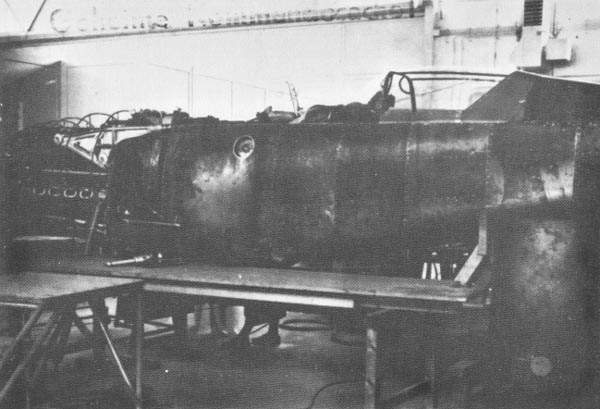
Messerschmitt Me-209 V-2 under construction (Source: Messerschmitt "O-Nine" Gallery)
|
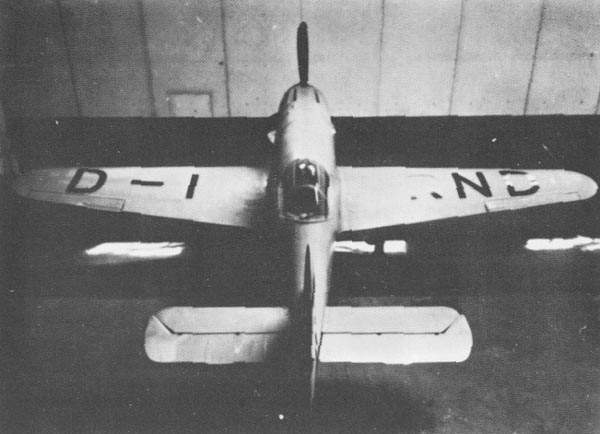
Messerschmitt Me-209 V-4 (Source: Messerschmitt "O-Nine" Gallery)
|
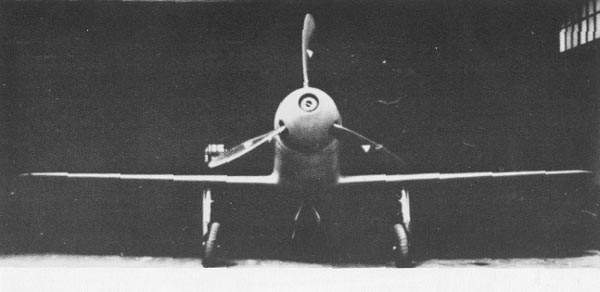
Messerschmitt Me-209 V-4 (Source: Messerschmitt "O-Nine" Gallery)
|
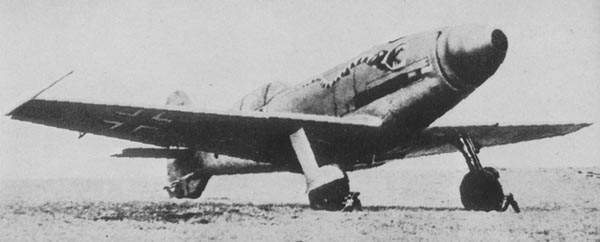
Messerschmitt Me-209 V-4 used for propaganda photographs (Source: Koku Fan Me-109 Special)
|
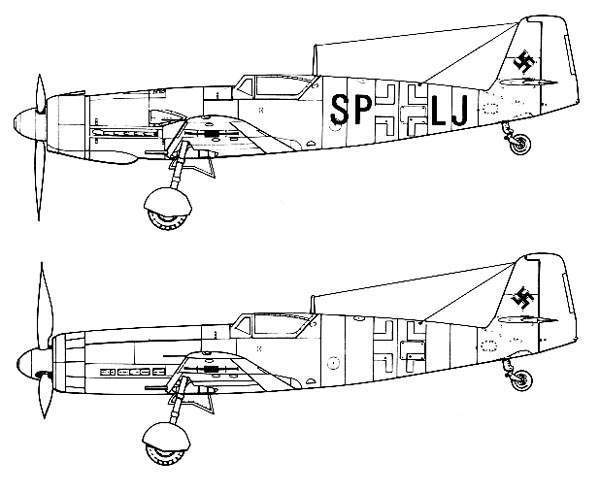
Messerschmitt Me-209 V-5 & V-6 (Source Messerschmitt "O-Nine" Gallery)
|
|
History Messerschmitt
wanted to produce a new design to compete with the Ta-152 fighter. This
was known as the Me-209-II. It bore no relation whatsoever with the 4
racing prototypes designated Me-209 from 1939. The
new prototype, the Me-209 V-5 flew for the first time on 3 November
1943. It was fitted with a DB 603A engine and utilized about 65% parts
of the Me-109G-5. The engine was later replaced by the more powerful DB
603G. Since
the number of DB 603G engines was limited, the RLM requested
Messerschmitt to fit his aircraft with the Jumo 213. During 1943 a
Me-109 F-1 was tested with a Jumo 213 engine with an annular radiator
similar to the FW-190D series. Construction
of the Me-209 V-6 began in December 1943 and it flew for the first time
in April 1944. It was slower however than the FW-190D-9 fitted with the
same engine and the order came to terminate the program. In order to
keep his aircraft alive, Messerschmitt renamed it Me-109L.
No additional aircraft were produced however. Two
production versions were planned, the A-1 and the A-2. Me-209
A-1 (project) Me-209
A-2 (project)
|
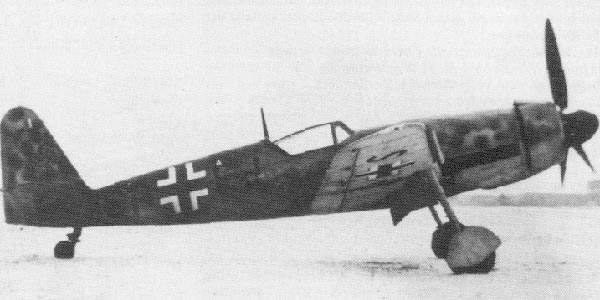
Messerschmitt Me-209 V-5 (Source: Die Deutsche Luftfaht, Willy Messerschmitt)
|
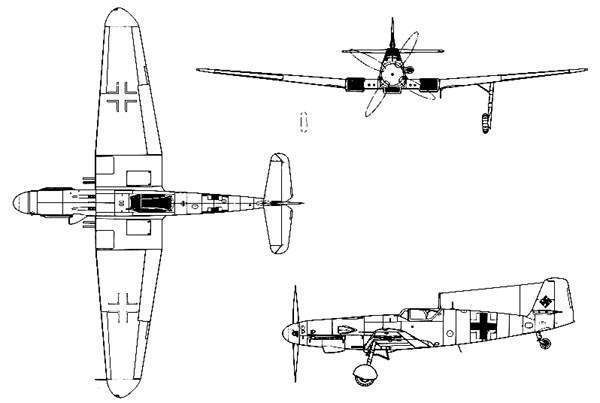
Messerschmitt Me-209 H V-1 (Source Messerschmitt "O-Nine" Gallery)
|
|
After
the cancellation of the P-1091 program,
Messerschmitt continued the development of this design into the P-1091B.
This lead to the development of the Me-209 H V-1 fighter. It was
planned to fit this aircraft with the DB 627 but as this was
discontinued the DB 603 was chosen instead. It is unclear if the
prototype was completed and flown.
|